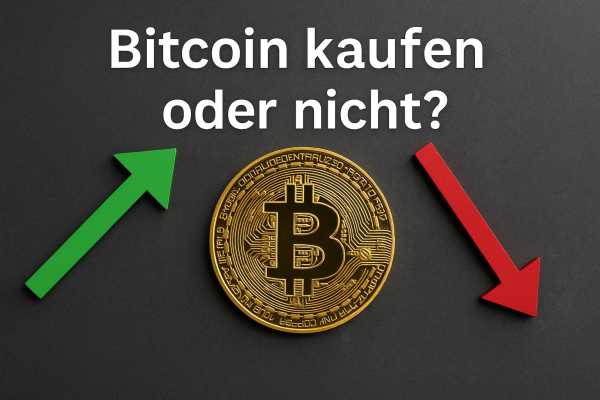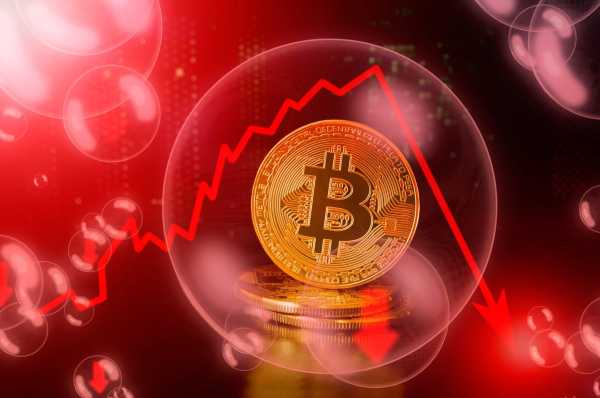Should I buy Bitcoin or not? Opportunities, risks, and tips for 2025

Is it worth buying Bitcoin?
The question “Should you buy Bitcoin or not?” is a question many investors discovering cryptocurrencies for the first time ask themselves. The short answer is: It depends on your goals, your time horizon, and your risk tolerance. Bitcoin is considered the most well-known cryptocurrency and is limited to 21 million units. This scarcity also makes the coin attractive as a means of payment in the future, as unlike fiat currencies (which can be issued by central banks in almost unlimited quantities), it has an anti-inflationary effect. While increases in the money supply reduce purchasing power in the long term with the euro or dollar, Bitcoin's limited supply protects against such dilution of value. At the same time, it is highly susceptible to volatility and therefore risky. Anyone who invests in Bitcoin should therefore be prepared to withstand short-term price losses.
How Bitcoin works
Bitcoin is based on blockchain technology. The maximum supply is limited to 21 million coins. New Bitcoins are created through mining. The reward for miners is halved every four years: this event is called a halving. Since 2024, only 3.125 BTC per block are possible. Each Bitcoin is divisible to eight decimal places. This means you can get started with small amounts, for example, 50 euros, which corresponds to approximately 50,000 Satoshis. Learn more: Buy Bitcoin with 50 euros.
Regulation and adoption boost
2024 was a milestone for the crypto industry. In the US, the Securities and Exchange Commission (SEC) approved the first Bitcoin spot ETFs. This makes it easier for institutional investors to invest in crypto, ensuring more transactions and liquidity. In Europe, the MiCA regulation came into force. Since 2024/25, it has ensured uniform rules and greater consumer protection for cryptocurrencies. For you, this means greater security when selecting reputable providers and platforms.
Costs and ways to purchase
There are various ways to buy Bitcoin, Ethereum, and other cryptocurrencies. The easiest way is through regulated exchanges and brokers like Bitpanda, Coinbase, or Bitvavo. You pay via SEPA, credit card, or another payment method and receive Bitcoin directly into your user account. Be aware of fees: In addition to trading fees, network fees may be charged when sending coins. These on-chain fees are not paid to the provider, but to the miners. Compare exchanges: Bitpanda vs. Coinbase
Bitcoin strategies: One-time investment or savings plan?
When investing in Bitcoin, you can choose between a one-time investment and a savings plan. With a one-time investment, you buy the desired amount immediately. Historically, this option has been more profitable in about two-thirds of cases. A savings plan, also known as a cost-average strategy, spreads your purchases over several months. This smooths out fluctuations in the price of Bitcoin and other cryptocurrencies and relieves you of the pressure to find the perfect entry point. With a Bitcoin savings plan at Bitpanda, Coinbase, or Bitvavo, you can invest automatically with just a few euros.
Learn more: Bitcoin savings plan
Bitcoin taxes in Germany
In Germany, the sale of Bitcoin, Ethereum, and other cryptocurrencies is considered a private sale. Unlike stocks, gains are tax-free if you hold your Bitcoin for more than a year. Since 2024, a tax-free allowance of €1,000 per year has applied to all private sales. If your gain exceeds this €1,000, the entire amount is fully taxable, not just the amount above the tax-free allowance. It is therefore important that you document all transactions: purchase date, sales price, fees, and wallet addresses. Learn more about crypto tax in the BTC-ECHO Academy.
Risks of buying Bitcoin
Bitcoin is highly volatile. The price can fluctuate by several percent in a single day. Added to this are risks such as hacker attacks on exchanges, insecure wallets, or regulatory changes. To limit your risk, you should only invest as much as you can afford to lose. It's also worth considering secure storage methods. Hardware wallets are considered the safest solution. If you want to sell: Cash out Bitcoin
Conclusion: Buy Bitcoin or not?
Whether the investment is worthwhile depends on you. If you, as an investor, are thinking long-term, can tolerate price fluctuations, and believe in the concept of a decentralized currency, Bitcoin can be a worthwhile addition to your portfolio. If you're looking for short-term gains or prefer very low risk, caution is advised. One thing is clear: Bitcoin is here to stay. A small investment can be worthwhile in the future to:
- blockchain technology,
- the platforms,
- the value and
- the market
to better understand the concepts behind modern cryptocurrencies.
If you want to take the next step, you can easily start with small amounts at established providers like Bitpanda, Coinbase, or Bitvavo. Buy Bitcoin now and gain your own experience.
FAQ: Frequently asked questions about whether or not to buy Bitcoin
Is it still worth buying Bitcoin?
Many experts view Bitcoin positively in the long term. Due to its scarcity and increasing adoption, it's considered digital gold. Whether it's worthwhile, however, depends on your investment horizon. You should factor in short-term fluctuations in value.
Should you buy Bitcoin now or wait?
There's rarely a perfect time. With a Bitcoin savings plan, you can get started over time and reduce the risk of making the wrong entry.
What fees are charged when buying Bitcoin?
There are transaction fees when purchasing, which vary depending on the provider. There are also network fees for transactions when you transfer Bitcoin to a wallet.
What are Bitcoin taxes in Germany?
Unlike stocks, gains are tax-free after a one-year holding period. If your gains are less than €1,000 per year, the tax-free allowance applies.



